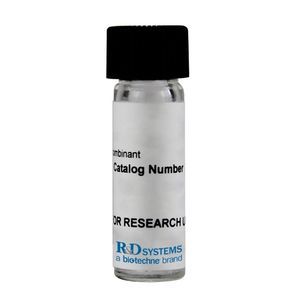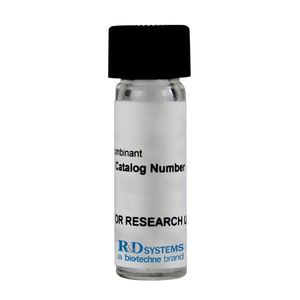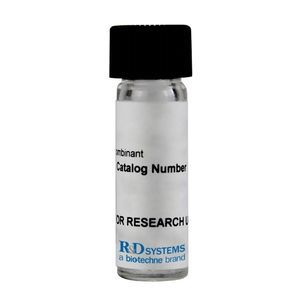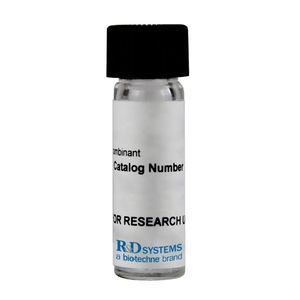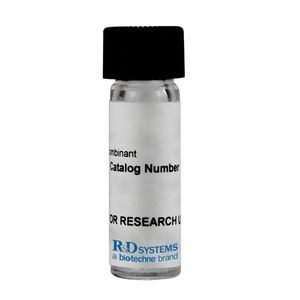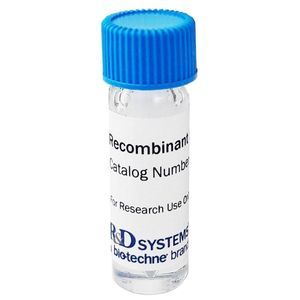
- Laboratory
- Laboratory medicine
- Enzyme reagent
- R&D Systems
Protein reagent U-100Hsolutionenzymebovine serum albumin
Add to favorites
Compare this product
Characteristics
- Type
- solution, enzyme, bovine serum albumin
- Applications
- for research, tissue
- Tested parameter
- protein
- Micro-organism
- CF
- Origin
- animal-based
- Storage temperature
Min.: -70 °C
(-94 °F)Max.: -20 °C
(-4 °F)- Purity
95 %
Description
Recombinant Human Ubiquitin can be conjugated to substrate proteins via the subsequent actions of a Ubiquitin-activating (E1) enzyme, a Ubiquitin-conjugating (E2) enzyme, and a Ubiquitin ligase (E3). Reaction conditions will need to be optimized for each specific application. We recommend an initial Recombinant Human Ubiquitin concentration of 0.01-0.5 mM.
Source - E. coli-derived human Ubiquitin protein
Met1 - Gly76
Accession # - P0CG47.1
Predicted Molecular Mass - 8.6 kDa
Carrier Free
What does CF mean?
CF stands for Carrier Free (CF). We typically add Bovine Serum Albumin (BSA) as a carrier protein to our recombinant proteins. Adding a carrier protein enhances protein stability, increases shelf-life, and allows the recombinant protein to be stored at a more dilute concentration. The carrier free version does not contain BSA.
What formulation is right for me?
In general, we advise purchasing the recombinant protein with BSA for use in cell or tissue culture, or as an ELISA standard. In contrast, the carrier free protein is recommended for applications, in which the presence of BSA could interfere.
Reconstitution - Reconstitute at 10 mg/mL in an aqueous solution.
Shipping - The product is shipped with polar packs. Upon receipt, store it immediately at the temperature recommended below.
Ubiquitin is a 76 amino acid (aa) protein that is ubiquitously expressed in all eukaryotic organisms. Ubiquitin is highly conserved with 96% aa sequence identity shared between human and yeast Ubiquitin, and 100% aa sequence identity shared between human and mouse Ubiquitin (1). In mammals, four Ubiquitin genes encode for two Ubiquitin-ribosomal fusion proteins
Catalogs
No catalogs are available for this product.
See all of R&D Systems‘s catalogsRelated Searches
- Assay kit
- Solution reagent kit
- Blood assay kit
- Serum assay kit
- Immunoassay assay kit
- Plasma assay kit
- Research reagent kit
- Protein reagent kit
- Diagnostic reagent kit
- Enzyme reagent kit
- Histology reagent kit
- Reagent medium reagent kit
- Immunology reagent
- Cytology reagent kit
- Antibody
- Buffer solution reagent kit
- ELISA assay kit
- Research assay kit
- Clinical reagent kit
- Virus reagent kit
*Prices are pre-tax. They exclude delivery charges and customs duties and do not include additional charges for installation or activation options. Prices are indicative only and may vary by country, with changes to the cost of raw materials and exchange rates.


